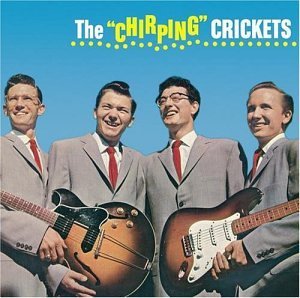http://www.heraldscotland.com/arts-ents/music-features/the-sounds-of-1971-live-on-1.1080391
http://www.denverpost.com/music/ci_17079620
The sounds of 1971 live on
Share
17 Jan 2011
Keith Bruce remembers a spectacular year for vinyl.
Glasgow’s Celtic Connections music festival, for all its basis on traditional forms, is more about geography than history, a great global coming together of loads of what might be (very) broadly categorised as “roots” music. However, before it gets under way, the regular bill of fare at new year always seems to have an historical feel, what with all those waltzes and polkas and performances of Messiah.
“Where would you like to be?” the season always asks, “The Vienna of Johann Strauss or the London (and Dublin) of George Frederick Handel?” To which BBC Radio 3 has added, with its epic survey of his music, the Salzburg of Wolfgang Amadeus Mozart, even if the composer himself was unlikely to recommend his birthplace as a desirable destination.
It’s enough to have a chap leafing through his own back pages, a distraction I am predictably prone to at this time of year. In a couple of weeks’ time I shall be 53, something about which I am neither boasting nor complaining. But those who share my wizard facility with figures will have calculated that this means I was 13 in 1971. This is not an event I expect to be marked like the anniversaries of Schumann and Chopin last year, or the bicentenary of Franz Liszt and the centenary of the death of Gustav Mahler in 2011, but it has got me thinking how fortunate I was to be embarking on my teens and my musical independence in that auspicious year.
Around my birthday George Harrison released My Sweet Lord, and I still have that very Apple label 45 in the Bruce alphabeticised singles storage system. However, my copies of Jeepster and Get It On by T Rex clearly failed to come home from a party, although the 1971 album from which they came, Electric Warrior, still has a secure place in the vinyl archive, even if I can’t swear that the extant copy is an original pressing.
Those of you who were at the start of secondary school then will remember the vinyl sports bags the boys all carried. They had a handy outside pocket in which to store a vinyl LP so that half of it was visible for maximum pose value.
And what discs we had to pose with in 1971 as we swapped purchases. A chap of eclectic tastes (me) could enjoy The Faces’ A Nod is as Good as a Wink to a Blind Horse and Rod’s Every Picture Tells A Story, Aqualung by Jethro Tull and Nursery Cryme by Genesis. There was The Stones’ zipper-sleeved Sticky Fingers, Led Zeppelin’s enigmatic “four symbols” album and Who’s Next.
For more mellow moments there was Tapestry by Carole King, Don McLean’s American Pie and Joni Mitchell’s Blue. Us really hip cats had Marvin Gaye’s What’s Going On, Sly & the Family Stone’s There’s A Riot Going On and Miles Davis’s A Tribute To Jack Johnson. Those of us signed in the oddballs club had a real thing for Family’s Fearless, The Beach Boys’ Surf’s Up and The Flaming Groovies’ Teenage Head.
That may well be just the half of it, but already it is a magnificent list from a seminal year. The Beatles? We didn’t miss them (although John Lennon’s Imagine and Paul McCartney’s Ram were released in the same year). I don’t seem to know any 12- or 13-year-olds – all the offspring of my friends are either much older or much younger – but I wish them the very best of luck with 2011. It has one storming act to follow from 40 years back.
Even better, we didn’t just swop those albums to listen to them. My teen generation were enthusiastic adopters of the cassette tape recorder, which was the first step in popular DIY recording and the democratisation of music-making. So the considerable investment of pocket money in a speculative new album was a shared and measured risk. Passed around, they were enjoyed many times more in cassette copies, an album on each side of a C90, custom sleeves made for the index cards. A direct output wired from the family radiogram, and increasingly skilled use of the pause button, made the process quite professional.
Some years later record labels began complaining that “home taping is killing music” and, 40 years on, we can comprehensively say that was a bare-faced lie. The music industry perhaps, but we were none too protective of that, as the generation that made punk went on to prove. Music is still very much alive and doing rather well, thank you – if not quite as spectacularly as it was in 1971.
http://www.denverpost.com/music/ci_17079620
Jethro Tull, for all its creative and commercial achievements, will always be remembered for its 1971 album "Aqualung," a classic that distilled the U.K. band's folk and hard-rock proclivities into a decidedly theistic (if anti-religious) message. Appropriately, the band is commemorating the disc's 40th anniversary with a summer tour where the album will be performed in its entirety (along with assorted hits).






















